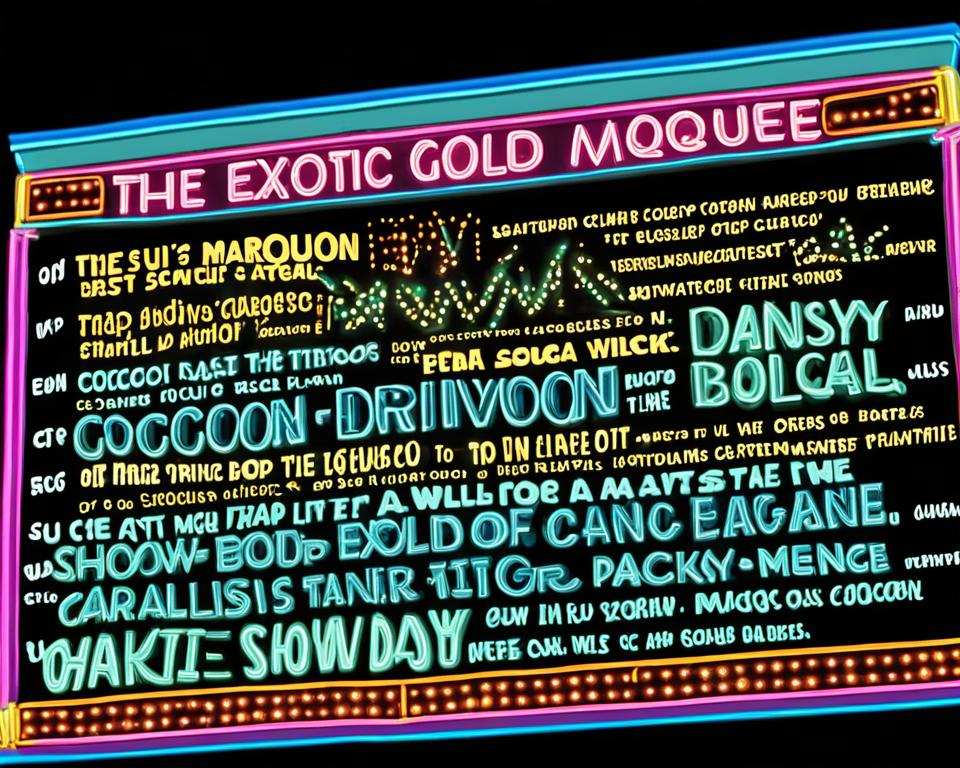There is a special place in cinema for movies that center around the lives of older people. These films offer a unique perspective on the complexities of aging, family dynamics, love, and personal growth. With elderly protagonists at the forefront, these movies provide heartfelt and inspiring stories that resonate with audiences of all ages.
Key Takeaways:
- Movies about old people offer a rich exploration of the experiences and complexities of aging.
- These films delve into themes such as family dynamics, love, and personal growth.
- Elderly protagonists bring a unique perspective that resonates with audiences of all ages.
- Each film on this curated list highlights the rich storytelling and emotional depth found in movies about old people.
- The power of these films lies in their ability to shed light on the challenges and joys of growing old.
Table of Contents
Vortex (2021): A Distilled Vision of Old Age and Decline
Gaspar Noé’s film, Vortex, offers viewers a profound and sensory exploration of old age and decline. Released in 2021, this captivating film delves into the daily reality of an aging couple grappling with the challenges of Alzheimer’s disease.
Set in a hauntingly beautiful sensory cinema experience, Vortex follows the poignant journey of the husband as he copes with his wife’s deteriorating condition. Noé masterfully captures the depths of the husband’s emotions, portraying his struggle, despair, and fleeting moments of hope with raw authenticity.
Through its intense and archetypal depiction of old age, Vortex shines a light on the complexities of aging, relationships, and the profound questions that arise in the later stages of life. Gaspar Noé’s visionary storytelling transports the audience into the couple’s world, evoking empathy and introspection.
Alzheimer’s Disease in Vortex:
One of the central themes of Vortex is Alzheimer’s disease, a progressive neurological disorder that affects millions of individuals worldwide. The film offers a deeply personal and intimate portrayal of the devastating impact of this condition on both the individual and their loved ones.
Inspired by real-life experiences, Gaspar Noé skillfully captures the disorienting and fragmented nature of memory loss, where cherished memories become elusive and the present is marred by confusion and moments of lucidity.
Vortex serves as a stark reminder of the daily challenges and emotional turmoil faced by individuals living with Alzheimer’s disease, as well as their caregivers. By shedding light on this debilitating condition, the film fosters understanding, empathy, and a deeper appreciation for the complexities of old age.
| Key Themes Explored in Vortex |
|---|
| Aging |
| Alzheimer’s disease |
| Relationships |
| Existentialism |
| Sensory cinema |
Gaspar Noé’s Vortex stands alongside other films that center around the experiences of elderly characters, providing a profound and thought-provoking cinematic exploration of old age, decline, and the fragility of memory.
Make Way for Tomorrow (1937): A Gut-Wrenching Exploration of Family Dynamics
Leo McCarey’s Make Way for Tomorrow is a poignant film that delves into the painful tensions between an elderly couple and their unsympathetic children. The story revolves around an aging couple facing financial difficulties and the challenges of growing old. As they seek support from their adult children, they are met with reluctance and indifference.
The film, set against the backdrop of the Great Depression, vividly captures the emotional impact of loss, financial struggles, and the generation gap. McCarey crafts a compelling narrative that explores the complexities of family dynamics and the strains placed on relationships as individuals confront their own mortality.
Make Way for Tomorrow is regarded as a tearjerker, thanks to its refusal to offer a traditional Hollywood ending. It presents an unflinching portrayal of the challenges faced by older people and the effects of family tensions on their lives. The film forces viewers to reflect on the importance of empathy, understanding, and compassion for the elderly.
Umberto D. (1952): A Neorealist Portrait of Poverty and Pride
Vittorio De Sica’s Umberto D. takes viewers on a poignant journey through the hardships faced by a retired government worker in postwar Italy. Set in Rome, the film portrays the stark reality of poverty and eviction that Umberto D., the protagonist, confronts.
Set against the backdrop of a rapidly changing society, Umberto D. delves deep into themes of pride, stubbornness, and the isolation experienced by an older generation left behind. The neorealist approach adopted by De Sica offers an authentic portrayal of the harsh socio-economic conditions prevalent in postwar Italy.
The film’s emphasis on poverty and alienation resonates strongly with audiences, shedding light on the struggles faced by older people who find themselves marginalized in a rapidly modernizing world. Umberto D.’s perseverance and dignity become symbolic of the resilience and strength of individuals in the face of adversity.
Legacy and Impact
Umberto D. remains a powerful testament to the human experience and the hardships faced by society’s most vulnerable members. Its neorealist aesthetic and compassionate portrayal of the protagonist have cemented its place in film history.
The film garnered critical acclaim and received numerous international awards, including the esteemed Palme d’Or at the 1952 Cannes Film Festival. Its exploration of poverty and pride continues to resonate with audiences, reminding us of the importance of empathy and compassion in a world that often overlooks the struggles of the elderly.
Film Analysis: The Portrayal of Poverty
Umberto D. presents a raw and unflinching portrayal of poverty that remains relevant today. Through its realistic depiction of the challenges faced by Umberto D., the film highlights the impact of societal inequalities and economic hardship on individuals’ lives.
The film showcases the daily struggles of Umberto D., revealing the constant battle for survival and the demeaning experiences faced by those living in poverty. The audiences witness the dehumanization that occurs, where individuals are stripped of their dignity and marginalized by society.
| Aspect | Exemplification |
|---|---|
| Financial Struggles | Umberto D.’s inability to pay rent and his desperate attempts to secure funds highlight the dire financial conditions experienced by many. |
| Lack of Support | Umberto D. faces a lack of support from his former colleagues, friends, and relatives, highlighting the isolation and alienation felt by those in poverty. |
| Desperation | The film showcases Umberto D.’s desperation as he resorts to extreme measures to survive, underscoring the extreme circumstances faced by those in poverty. |
The neorealist approach and Vittorio De Sica’s direction invite audiences to confront the realities of poverty, fostering empathy and understanding for the challenges faced by the elderly.
The Straight Story (1999): An Unconventional Journey of Reconciliation
David Lynch’s The Straight Story takes viewers on a unique and heartwarming road trip of reconciliation. In this acclaimed film, Richard Farnsworth delivers a moving performance as the protagonist who embarks on a 240-mile journey on his lawnmower to visit his ailing, estranged brother.
Through the picturesque landscapes and encounters with various characters along the way, the movie explores themes of forgiveness, reconciliation, and the power of human connection. As the journey progresses, we witness the protagonist’s determination and unwavering spirit, showcasing the resilience and strength of older individuals.
Directed by the visionary filmmaker David Lynch, The Straight Story stands out for its unconventional storyline and masterful storytelling. It reminds us of the importance of family bonds and the transformative power of forgiveness, leaving a lasting impact on viewers long after the credits roll.


